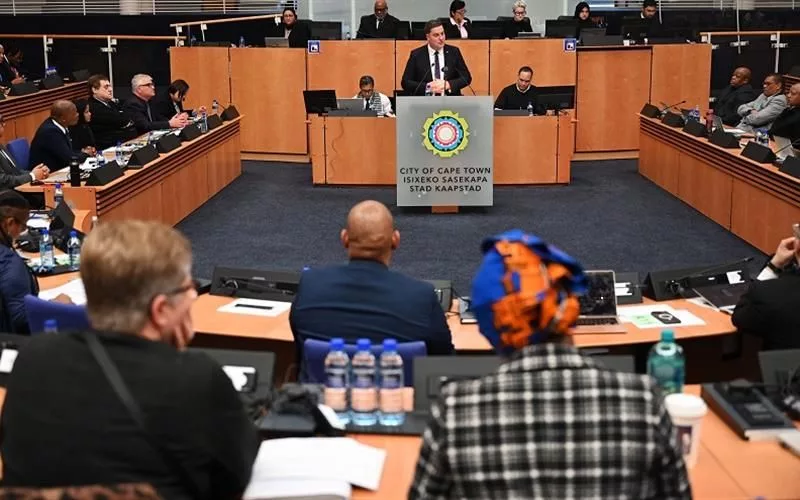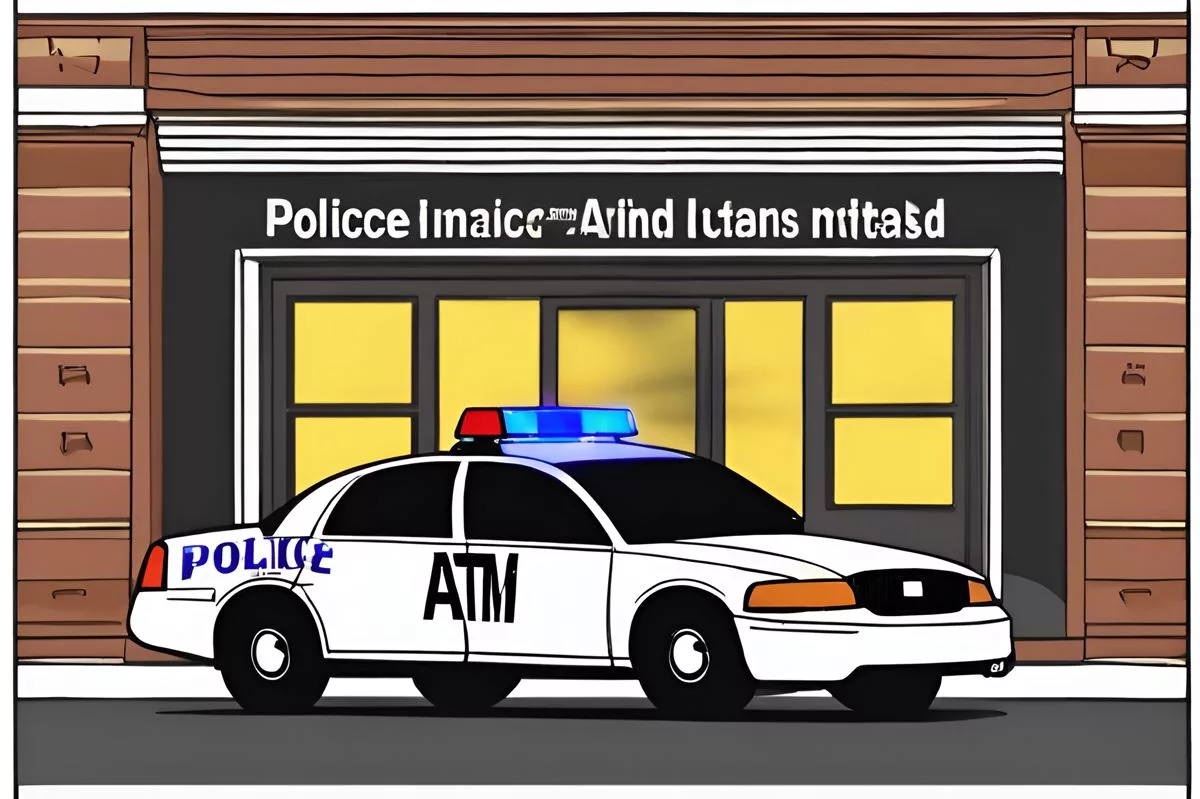Cape Town’s Mayor Geordin Hill-Lewis presented a comprehensive advocacy agenda focused on law enforcement, passenger rail services, affordable housing, and economic development, reflecting the city’s commitment to improving the lives of its residents. Specific proposals include municipal police investigative authority, a transfer of responsibility for train services to the city, and the release of national mega-properties for affordable residential units. Hill-Lewis’s agenda is a canvas of positivity, potential, and well-planned development, reflecting the city’s commitment to embracing change and innovation.
Cape Town is embracing change and innovation with a comprehensive advocacy agenda presented by Mayor Geordin Hill-Lewis. The agenda focuses on critical concerns such as law enforcement, passenger rail services, affordable housing, and economic development. Specific proposals include municipal police investigative authority, a transfer of responsibility for train services to the city, and the release of national mega-properties for affordable residential units. The agenda reflects the city’s commitment to improving the lives of its residents and the newfound optimism under the newly formed Government of National Unity.
Embracing Change in the Urban Jungle
In the heartland of Africa, Cape Town shines like a precious gemstone. The city is making conscious strides towards its future, while keeping its unique principles intact. This was clearly seen in the recent municipal update presented by Mayor Geordin Hill-Lewis. With passion and dynamism, he outlined the city’s advocacy intentions for the recently formed Government of National Unity (GNU).
As the political landscape evolves in the Rainbow Nation, the Mayor’s agenda is a canvas of positivity, potential, and well-planned development. The first of its kind under the GNU, Hill-Lewis’s agenda zeroes in on critical concerns like law enforcement, passenger rail services, affordable housing, and the reduction of bureaucratic hurdles to spur economic development.
Digging into the agenda’s specifics, the enhancement of municipal police powers was the opening topic. This change would be particularly effective against criminal activities related to gangs, firearms, drugs, and extortion. The Mayor fervently proposed a minor amendment to the SAPS Act, which would endow municipal police with investigative authority. This seemingly minor change could have a profound impact on the city’s crime levels, making Cape Town safer for its residents.
Reimagining Public Transport and Housing Solutions
The next discussion point was the city’s passenger rail service. Mayor Hill-Lewis emphasized the need to set a definitive deadline for transferring the responsibility of train services to the city. He disclosed that a Service Level Agreement with PRASA was nearing completion and that the city’s Rail Feasibility Study was making good progress. These developments, along with potential private sector participation, indicate a promising future for Cape Town’s rail infrastructure.
Affordable housing, an essential concern for any growing city, was also on the agenda. The Mayor spoke about his fruitful discussions with National Public Works Minister, Dean Macpherson, about the release of several national mega-properties. These properties, including largely empty areas like Wingfield, Youngsfield, Wynberg military bases, and the Acacia Park Parliamentary Village, could accommodate approximately 100,000 affordable residential units in Cape Town. This initiative has the potential to change the lives of numerous Cape Town families and contribute significantly to the city’s socio-economic growth.
However, the Mayor also touched upon the obstacles thwarting the affordable housing sector, such as harsh national subsidy restrictions. He stressed the need for appropriate funding for the Social Housing Regulatory Authority and reducing the red-tape around subsidies while safeguarding pro-poor grants from budget cuts. Mayor Hill-Lewis firmly believes that these initiatives could speed up the delivery of more social housing within the city.
Stepping Towards Economic Growth
Lastly, the Mayor discussed economic development. He enthusiastically applauded the President’s commitment to reduce bureaucratic obstacles, thereby enabling government infrastructure investment and economic progression. The Mayor expressed particular satisfaction with the President’s promise to boost public infrastructure investment in metropolitan regions. This is because Cape Town is currently investing an unprecedented R39.5bn in infrastructure over a three-year period, 75% of which will directly benefit lower-income households.
Mayor Hill-Lewis’s update was more than a simple presentation of plans and projects. It was a powerful manifestation of the city’s commitment to improving the lives of its residents. It also reflected the newfound optimism and hope under the newly formed Government of National Unity. The journey ahead is filled with challenges, but Cape Town, steered by the leadership of Mayor Hill-Lewis, is prepared to tackle these challenges, moving forward with unwavering determination to build a city that truly exemplifies the spirit of the Rainbow Nation.
1. What is Cape Town’s Mayor Geordin Hill-Lewis advocating for in the city’s comprehensive advocacy agenda?
Mayor Geordin Hill-Lewis is advocating for law enforcement, passenger rail services, affordable housing, and economic development in Cape Town through specific proposals such as municipal police investigative authority, a transfer of responsibility for train services to the city, and the release of national mega-properties for affordable residential units.
2. What is the significance of the agenda in relation to the city’s commitment to improving the lives of its residents?
The agenda reflects the city’s commitment to embracing change and innovation while improving the lives of its residents through carefully planned development and addressing critical concerns that affect the city and its people.
3. What are the specific proposals regarding law enforcement in Cape Town?
The Mayor proposed an enhancement of municipal police powers through a minor amendment to the SAPS Act, which would give municipal police investigative authority and help combat criminal activities related to gangs, firearms, drugs, and extortion.
4. What is the Mayor’s plan for transferring the responsibility of train services to the city?
The Mayor emphasized the need to set a definitive deadline for transferring the responsibility of train services to the city and disclosed that a Service Level Agreement with PRASA was nearing completion. The city’s Rail Feasibility Study was also making good progress, and potential private sector participation indicates a promising future for Cape Town’s rail infrastructure.
5. How is the city addressing the need for affordable housing?
The Mayor spoke about fruitful discussions with National Public Works Minister, Dean Macpherson, about the release of several national mega-properties that could accommodate approximately 100,000 affordable residential units in Cape Town. However, the Mayor also touched upon the obstacles thwarting the affordable housing sector, such as harsh national subsidy restrictions, and stressed the need for appropriate funding for the Social Housing Regulatory Authority and reducing red-tape around subsidies while safeguarding pro-poor grants from budget cuts.
6. How is the city working towards economic development?
The Mayor applauded the President’s commitment to reduce bureaucratic obstacles, thereby enabling government infrastructure investment and economic progression. The Mayor expressed particular satisfaction with the President’s promise to boost public infrastructure investment in metropolitan regions, as Cape Town is currently investing an unprecedented R39.5bn in infrastructure over a three-year period, 75% of which will directly benefit lower-income households.












